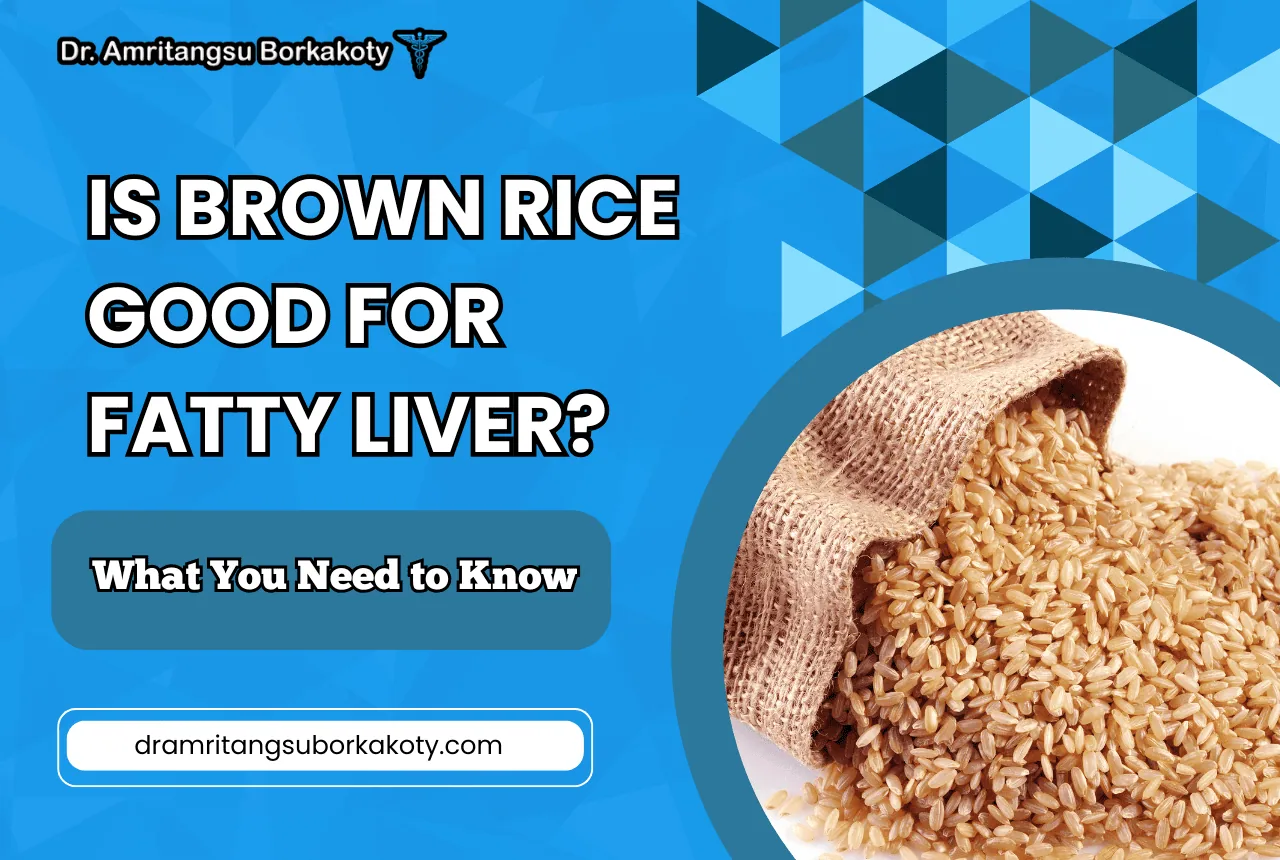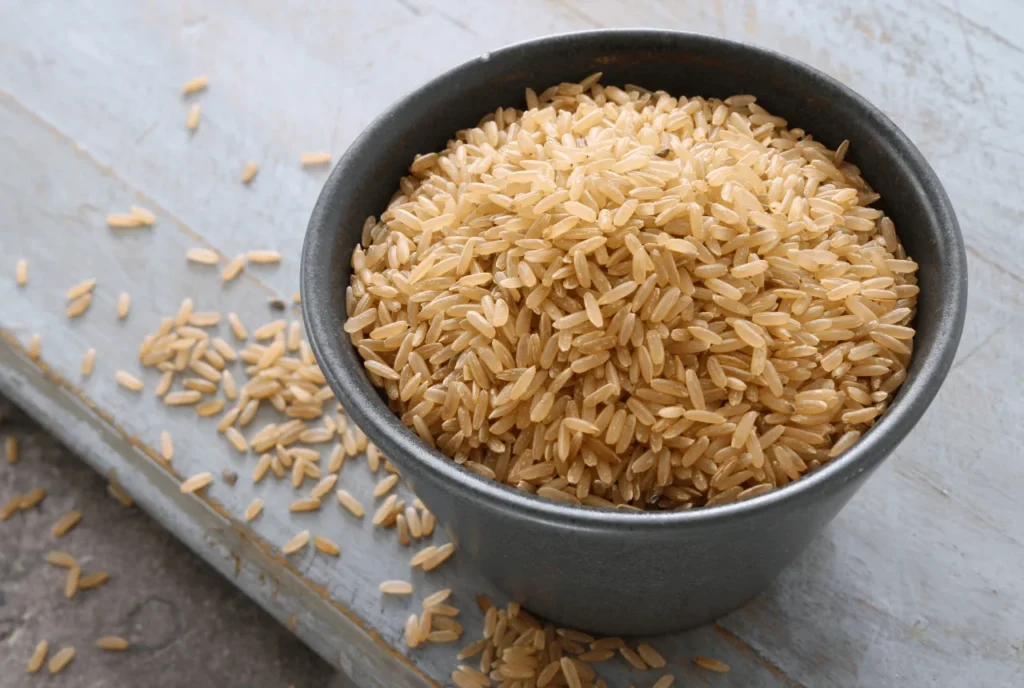
-
 Posted By Dr. Amritangsu Borkakoty
Posted By Dr. Amritangsu Borkakoty -
-
Comments 0
Is Brown Rice Good for Fatty Liver?
Fatty liver disease, which includes both non-alcoholic fatty liver disease (NAFLD) and alcoholic fatty liver disease (AFLD), is a growing health concern worldwide. It occurs when excess fat builds up in the liver, leading to inflammation and potential liver damage. Diet plays a crucial role in managing liver health, and one question that often arises is: Is brown rice good for fatty liver? In this article, we will explore the benefits of brown rice for those dealing with fatty liver disease and how it can be incorporated into a healthy diet.
Understanding Fatty Liver Disease
Fatty liver disease can be classified into two main types:
- Non-Alcoholic Fatty Liver Disease (NAFLD): This is not related to alcohol consumption and is often linked to obesity, diabetes, and high cholesterol levels.
- Alcoholic Fatty Liver Disease (AFLD): This type is caused by excessive alcohol intake.
Both conditions can lead to serious complications if not managed properly, so making dietary choices is essential for maintaining liver health.
Is Brown Rice Good for Fatty Liver?

Brown rice has gained popularity as a healthier alternative to white rice, especially for individuals with fatty liver disease. Here’s how brown rice supports liver health:
- Nutritional Profile: Brown rice is packed with essential nutrients. It contains high levels of fiber, B-complex vitamins (like B1, B3, and B6), minerals such as magnesium and selenium, and antioxidants that help combat oxidative stress.
- Low Glycemic Index: Brown rice has a lower glycemic index compared to white rice. This means it causes a slower rise in blood sugar levels, which can improve insulin sensitivity—an important factor in managing fatty liver.
- Comparison with White Rice: Unlike white rice, which has been stripped of its bran and germ during processing, brown rice retains these nutrient-rich parts. This makes brown rice a more beneficial choice for those managing fatty liver.
Incorporating brown rice into your diet can provide numerous benefits for liver health and help manage the symptoms of fatty liver disease effectively.
7 Benefits of Brown Rice for Fatty Liver
1. Reduces Fat Accumulation in the Liver

Brown rice improves insulin sensitivity, which helps reduce fat storage in the liver. By regulating blood sugar levels, it prevents excessive fat accumulation that can worsen fatty liver conditions.
2. Supports Weight Management

The high fiber content in brown rice promotes feelings of fullness, which can aid in weight loss. Maintaining a healthy weight is crucial for managing fatty liver disease effectively.
3. Lowers Cholesterol Levels

Brown rice contains phytosterols that help reduce LDL cholesterol levels. High cholesterol is a significant risk factor for fatty liver disease; thus, consuming brown rice can contribute to better cholesterol management.
4. Provides Antioxidants

Rich in phenolic compounds and flavonoids, brown rice helps combat oxidative stress and inflammation in the liver. These antioxidants protect the liver from damage and promote overall health.
5. Improves Lipid Metabolism

Brown rice enhances fatty acid oxidation and reduces triglyceride levels in the liver. This improvement in lipid metabolism is beneficial for individuals with fatty liver disease.
6. Stabilizes Blood Sugar Levels

With its low glycemic index, brown rice prevents spikes in blood sugar levels. This stabilization reduces strain on the liver and supports better metabolic health
7. Promotes Overall Liver Function

Regular consumption of brown rice can improve liver enzyme levels (such as ALT and AST) and reduce markers of inflammation. This promotes better overall liver function and health.
How to Incorporate Brown Rice into a Fatty Liver Diet
Incorporating brown rice into your meals can be simple and delicious! Here are some tips:
- Cooking Techniques: To retain nutrients when cooking brown rice, consider soaking or sprouting it before cooking. This can enhance its nutritional profile further.
- Meal Ideas:
- Brown Rice Bowls: Combine cooked brown rice with lean proteins like chicken or tofu and plenty of vegetables.
- Salads: Use brown rice as a base for salads by mixing it with greens, beans, nuts, and a light dressing.
- Side Dishes: Serve brown rice alongside grilled fish or steamed vegetables for a balanced meal.
- Portion Control: While brown rice is healthy, it’s essential to practice portion control to balance calorie intake effectively.
Expert Insights on Managing Fatty Liver
Dr. Amritangshu Borkakoty is one of the best liver specialists in Guwahati and Assam. He emphasizes the importance of dietary changes in managing fatty liver disease. According to Dr. Borkakoty:
“Whole grains like brown rice are excellent choices for individuals dealing with fatty liver disease. They provide essential nutrients while helping manage blood sugar levels and reducing fat accumulation.”
Consulting healthcare professionals before making significant dietary changes is crucial to ensure that you’re making choices that align with your specific health needs.
Conclusion
In summary, incorporating brown rice into your diet can offer numerous benefits for managing fatty liver disease. Its high fiber content, low glycemic index, and rich nutrient profile make it an excellent addition to a liver-healthy diet.
If you’re looking to improve your liver health or manage fatty liver symptoms effectively, consider making brown rice a staple in your meals. Always consult specialists like Dr. Amritangshu Borkakoty for personalized advice tailored to your unique health situation.
By adopting a balanced diet that includes nutritious options like brown rice, you can take proactive steps toward better liver health and overall well-being!
Recent Posts
- Early Symptoms of Liver Damage: How to Spot the First Warning Signs Before It’s Too Late
- Best Treatment for Hepatitis B and C: Your Complete Guide to Symptoms, Care, and Prevention
- How to Reduce Liver Inflammation Fast: 5 Proven Tips for Rapid Liver Recovery
- Why You Shouldn’t Ignore NAFLD: 5 Shocking Health Risks You Need to Know
- Nutrient Rich Food for Liver: 6 Powerful Foods That Transform Liver Health


